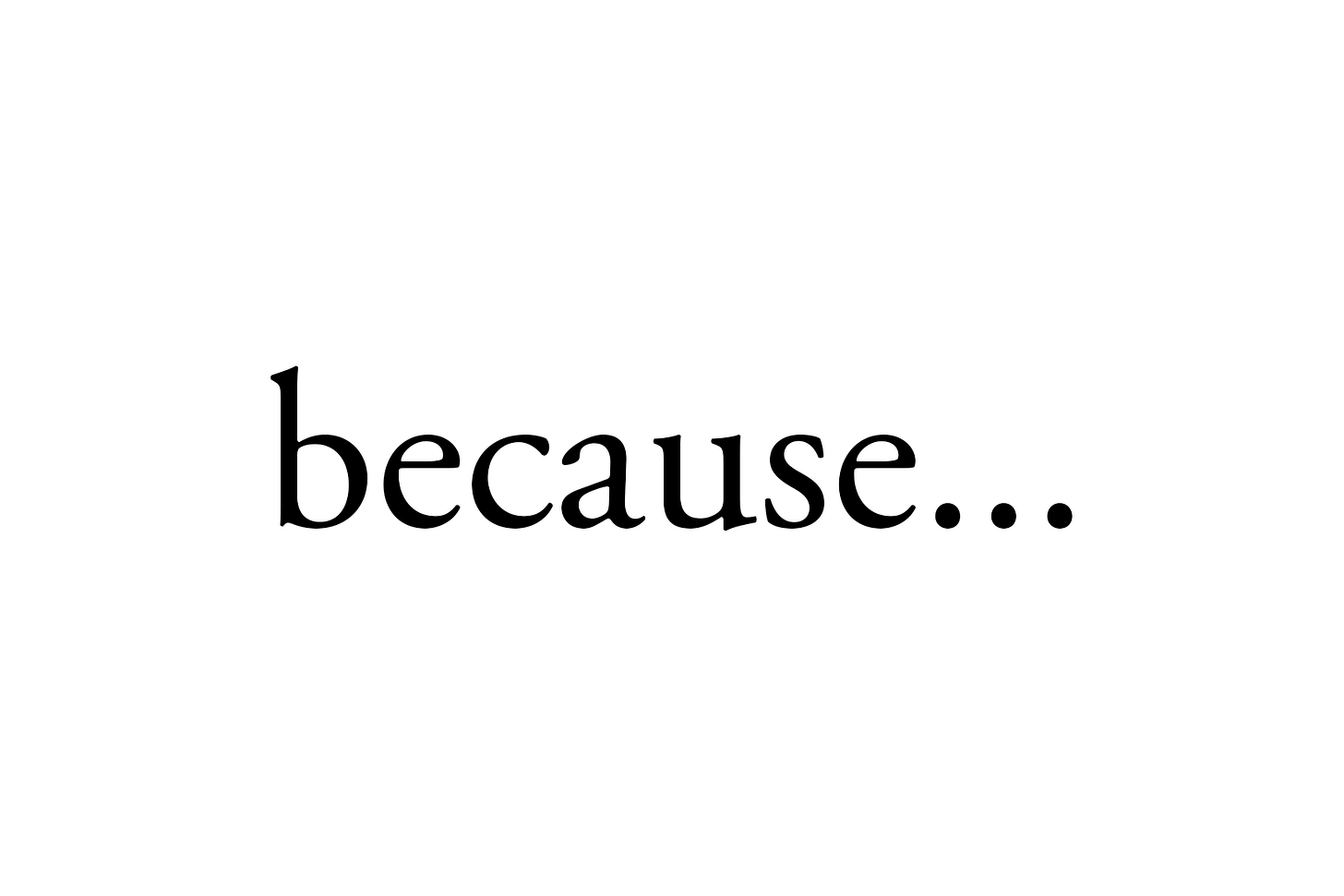Because

Beginning around ages 2 or 3, children attempt to satisfy their worldly curiosity by asking “Why?” Why is she sad? Why can’t I have this? Why do I have to do that?
Preschool kids ask their parents an average of 100 questions per day. As an annoyingly precocious child, I probably posed closer to 1000 daily inquisitions. Inevitably driving my parents to the default conjunction-as-sentence, Because.
Because.
Because is such a powerful word. Typically serving as the temporal transition between knowledge gap and understanding. As soon as we hear the word, there’s an expectation that what’s to follow will be contextually meaningful.
Because precedes reason. And reason precedes insight. Which makes because such an intriguing prelude.
Especially when we use it to rationalize emotion.
I’m happy because …
I’m angry because …
I’m frightened because …
I’m suffering because …
What follows is our interpretation of reality. Whether or not it’s true.
And it’s never true.
Our explanation of every emotion always has something to do with our body, another body, or a situation going on in the world.
Which has the unfortunate effect of negating because’s revelatory reason into obfuscatory illusion.
Because with regard to emotion definitively states, “That is why I feel the way I do.”
Without ever wondering, “What if I’m wrong?”
As we learn in philosophical foundations such as A Course in Miracles:
I am never upset for the reason I think. (W-pI.5)
What the course teaches is that all emotion is the result of thought. And all thought the result of which mind we’ve chosen. Having absolutely nothing to do with our body, another body, or anything to do with the world at large.
Which is why we’re never upset for the reason we think.
But we can use all our because’s to lead us back to the true source of pain and peace - where we can make a much more helpful choice.
By looking with gentleness and kindness at each one of our because’s, we see the world in a completely different light. Our attention is directed back to the mind, where we can literally be cause, and as such experience blissful, unconditional peace.
Join me in Thursday’s class where we’ll explore the nature of cause and effect, and practices we can learn for transcending all pain. I look forward to seeing you then.

